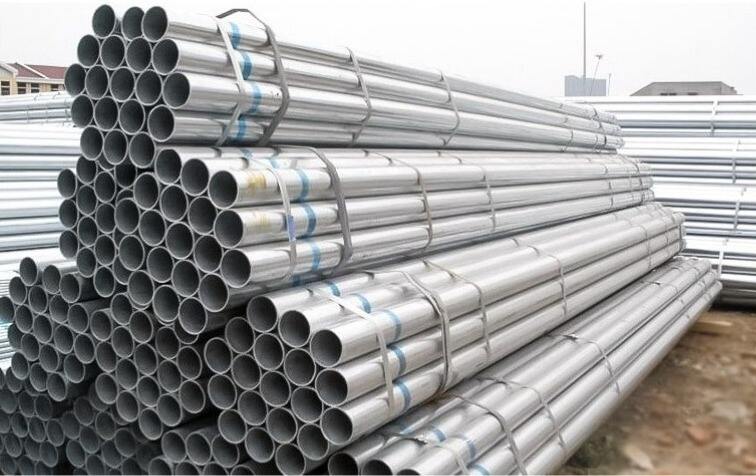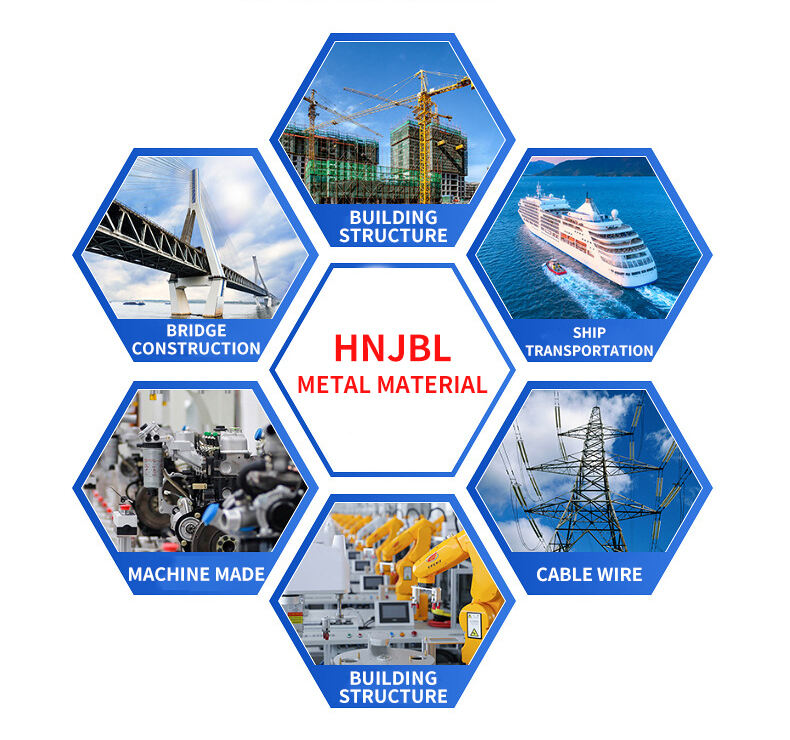Are you considering whether galvanized pipe is right for your plumbing needs? With so many different types of pipe materials on the market, making an informed choice can be a real challenge. Each material has its own unique characteristics and advantages.
As a traditional and widely used pipe material, galvanized steel pipe has played an important role in construction and drainage systems for many years. Galvanized pipes are recognized for their strength, durability, and corrosion resistance. However, like any material, galvanized pipes also have their advantages and disadvantages.
With years of industry experience, we have an in-depth understanding of the various properties of galvanized steel pipes, including their corrosion resistance, durability, and the rust problems they may face under certain special conditions. Whether you are considering installing a brand new pipe system or want to solve problems in an old system, we can provide you with valuable insights to help you make an informed decision.
In this article, we will analyze the advantages and disadvantages of galv pipes in detail to help you fully understand this pipe material.
What Is Galvanized Pipe?

Galvanized pipe is a steel pipe that has been galvanized and covered with a layer of zinc to improve the corrosion resistance of the pipe. There are two common types of galvanized pipes: hot-dip galvanized pipes and electro-galvanized pipes.
Classification Of Galvanized Pipes:
Hot-dip galvanizing: The steel pipe is immersed in molten zinc liquid to form a zinc layer through chemical reaction. The zinc layer of hot-dip galvanized pipes is thicker and has better corrosion resistance.
Electro-galvanizing: Zinc is coated on the surface of the steel pipe by electrolysis. The zinc layer is thinner and the surface is smooth, but the corrosion resistance is slightly inferior to hot-dip galvanizing.
Pros Of Galvanized Pipes:
1). Excellent corrosion resistance
The zinc layer can effectively isolate water and air from direct contact with the surface of the steel pipe, thereby greatly reducing the risk of corrosion. Especially in humid, acidic and alkaline environments, the anti-corrosion ability of galvanized pipes is particularly outstanding.
2). Extend service life
The corrosion resistance of galvanized pipes directly extends the service life of the pipes. Compared with ordinary black steel pipes, galvanized pipes usually have a longer service life, which can reach more than 30 years.
3). High cost performance
The price of galvanized pipes is relatively low, so they have a high cost performance. Although the price of galvanized pipes is usually higher than that of ordinary steel pipes, their anti-corrosion performance and long service life make galvanized pipes save a lot of maintenance and replacement costs in long-term use.
4). Wide range of applications
Galvanized steel pipes are widely used in water supply, drainage, gas transmission, farmland irrigation, industrial equipment supports, greenhouse construction, etc.
5). Environmental protection
Zinc itself is an environmentally friendly material, and galvanized pipes will not pollute the environment during use. Compared with other anti-corrosion methods (such as painting or spraying), galvanized pipes are more sustainable.
Cons Of Galvanized Steel Pipes:
Although galvanized steel pipes are widely used due to their corrosion resistance, strength and economy, they also have some limitations. Understanding these disadvantages is very important for using galvanized steel pipes.
1). Unable to withstand high temperatures
The zinc layer of galvanized steel pipes is easily damaged in high temperature environments, especially when exposed to hot water or steam pipe systems. The melting point of the zinc layer is low, usually 419℃. Once the temperature exceeds this value, the zinc layer will melt or oxidize, causing the pipe to lose its anti-corrosion ability. For example, using galvanized steel pipes in hot water systems or steam pipes may cause them to corrode prematurely, so these occasions need to consider using high-temperature resistant materials such as stainless steel pipes or copper pipes.
2). Heavy weight and difficult installation
Compared with other pipe materials, galvanized steel pipes are relatively heavy, especially in large-diameter applications, which makes the handling and installation process more difficult and cumbersome. Although it has high mechanical strength, this weight may also increase the cost of transportation and installation. For pipe systems that need to be frequently moved or installed at high places, heavier galvanized steel pipes may increase the labor intensity of installers and require more equipment support, resulting in increased construction costs.
3). Not suitable for applications with high sanitation requirements
In drinking water pipe systems, the use of galvanized pipes is often questioned because the zinc layer on its surface may gradually fall off over time, affecting water quality. Although galvanized pipes are widely used in general household water supply, they may not be an ideal choice for environments where water quality needs to be strictly controlled, such as hospitals, laboratories, and other places.
4). Limited service life
Although galvanized pipes are more durable and their service life can usually reach 20 to 30 years, this does not mean that they can maintain the same life in all environments. Especially in highly corrosive environments, the service life of galvanized pipes may be shortened. If exposed to moisture, chemicals or high temperatures for a long time, the performance of galvanized steel pipes will deteriorate rapidly. To ensure its long-term stable operation, galvanized pipes need to be inspected and maintained regularly. Once signs of wear or corrosion of the zinc layer are found, it may need to be replaced or repaired.
Who Are Galvanized Pipes Suitable For?
 Construction projects
Construction projects
Galvanized pipes are widely used in the construction industry, especially for water supply systems, drainage systems and fire protection systems. Due to their corrosion resistance and anti-oxidation properties, galvanized pipes can effectively extend the service life of pipes and reduce the cost of long-term maintenance and replacement.
 Medium and low pressure transmission pipelines
Medium and low pressure transmission pipelines
Galvanized pipes are an economical and reliable choice for some medium and low pressure fluid transportation. For example, they are used in urban water supply systems, irrigation systems and some industrial pipelines.
 Residential and commercial buildings
Residential and commercial buildings
Galvanized pipes are widely used in water supply pipes for residential and commercial buildings due to their relatively low cost and good corrosion resistance, especially in the process of urban construction. For general household or commercial users, galvanized pipes provide a cost-effective option.

Who Are Galvanized Pipes Not Suitable For?
 Strongly corrosive environments
Strongly corrosive environments
In some strong acid and alkali environments, galvanized pipes may be corroded, causing premature damage to the pipes. Therefore, in the chemical industry, some special industrial equipment and other occasions, it may be necessary to choose other pipes that are not susceptible to chemical corrosion, such as stainless steel pipes, aluminum alloy pipes, etc.
 High-pressure fluid transportation
High-pressure fluid transportation
For high-pressure fluid transportation, the strength of galvanized pipes may not meet the requirements, and leakage or pipe rupture may occur easily. In this case, higher-strength materials are usually selected, such as stainless steel pipes, alloy steel pipes or other pipe materials specially designed for high-pressure environments. These materials can withstand greater pressure without deformation or damage, ensuring the stability and safety of the pipeline system.
 Environments with strict hygienic requirements
Environments with strict hygienic requirements
Although galvanized pipes have good corrosion resistance in many cases, if they are in contact with drinking water for a long time or used in environments with high hygienic requirements, the zinc layer of the galvanized pipe may dissolve or fall off, causing water pollution and affecting the safety of the pipe. Therefore, galvanized pipes may not be suitable for use in some drinking water pipes or medical facilities with extremely high water quality requirements. These environments usually require materials such as stainless steel pipes or copper pipes to ensure the hygienic safety of the pipes.
How To Choose The Best Pipe Option For Your Home?
 Pipeline Purpose:
Pipeline Purpose:
When choosing a pipe, you must first clarify the purpose of the pipe. The needs in the household pipe system mainly include water supply, drainage, HVAC, etc. Galvanized pipes are widely used in water supply and drainage systems. For some special uses, such as drinking water pipes, users may need to choose stainless steel pipes or other pipe materials that meet hygienic standards.
 Use environment and temperature requirements:
Use environment and temperature requirements:
If the pipe is used in a high temperature environment or needs to withstand high water pressure, then galvanized pipes may not be suitable. For example, hot water pipes, steam pipes and other applications are best to choose stainless steel pipes or copper pipes, which will not lose their anti-corrosion function at high temperatures. If the home uses ordinary cold water or medium and low pressure water pipe systems, galvanized pipes are a more ideal choice.
 Long-term maintenance cost:
Long-term maintenance cost:
Although the initial cost of galvanized pipes is low, as the service life increases, the surface of the pipe may be damaged or corroded, resulting in problems such as pipe leakage and blockage. Therefore, if you want to reduce the frequency of later maintenance and replacement, you can consider using stainless steel pipes or other materials with stronger corrosion resistance.
 Budget factors
Budget factors
Galvanized pipes are usually cheaper than other materials such as stainless steel pipes, so if the budget is limited, galvanized pipes may be a more suitable choice. Especially in large-scale construction, galvanized pipes are very cost-effective and can significantly reduce the overall project cost.
When choosing pipe materials, you should consider the needs of different pipes, budgets, and long-term maintenance costs, and choose the most suitable pipe materials to ensure the stability, safety, and economy of the home pipe system.
We are a professional steel manufacturer. If you have any needs, you can contact us at any time!
 +86 17611015797 (WhatsApp )
+86 17611015797 (WhatsApp )  info@steelgroups.com
info@steelgroups.com
